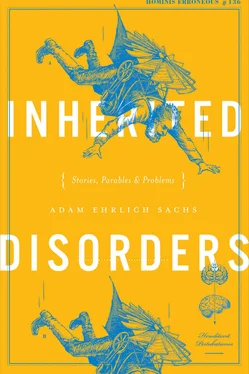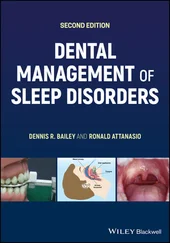…………………….
The so-called Surrogate Sons Program at a Cleveland assisted-living facility has been altered to better suit the needs of its residents. In response to complaints that the frequency, willingness, duration, and mood of the surrogate sons’ visits were all undermining their authenticity, facility administrators have asked the surrogates to visit less frequently, less willingly, for shorter stretches at a time, and with more unspoken resentment and visible unease. During a meeting this fall, a number of surrogates shared tips on how to make the experience as realistic as possible. Mr. Solomon’s surrogate son likes to begin a game of Rummy 500 but leave well before either player reaches 500 points, with an excuse that cannot help but indicate the bustling, populated nature of his life. When Mr. Nolan’s surrogate comes to visit, it’s like he’s only interested in using the pool and sauna. “I wait until Mr. Nolan’s telling me about the moment in the 1950s when he realized communism was misguided, and then I suddenly ask how late the sauna’s open,” the surrogate shared. Mr. Wellerstein’s surrogate sends him an email every so often saying he might not be able to visit until March; when March rolls around, the surrogate simply doesn’t show up (or even send an email explaining why). Next time he emails, he just pretends like he never said anything about March. Soon he starts emailing about a potential visit the following March. On his comment card, Mr. Wellerstein rated his surrogate son experience a five (“Excellent”) and noted, in the space for additional comments, that he was “looking forward to March.”
But perhaps the most instructive case is that of Mr. Shapiro. Mr. Shapiro has not yet heard from his surrogate son, a silence that reminds Mr. Shapiro, he told administrators, of his actual son’s silence. Lately, when Mr. Shapiro, a survivor of the Leningrad blockade, cries out, terrified, in the night, he calls not for his son but for his surrogate son . The nonarrival of the surrogate son faithfully mimics the nonarrival of the actual son, neither of whom, according to Mr. Shapiro, can be blamed for leading a full life and being busy with career and family. His actual son once suggested recording an oral history of his father’s experiences during the Leningrad blockade, but he has not followed through on the idea and probably never will. The surrogate son has also, realistically, never recorded an oral history of Mr. Shapiro’s blockade experiences. The nonrecording of the surrogate is indistinguishable from the nonrecording of the actual. Mr. Shapiro rated his surrogate son experience a five. “What a splendid service!” he effused. It was only when administrators looked up his surrogate son, with the idea of having him speak at their fall meeting, that they realized Mr. Shapiro had not signed up for the Surrogate Sons Program and had never been assigned a surrogate. Still, they consider his case a model of what the program can, at least in theory, hope to achieve.
…………………….
They were in line at the deli when a black-haired man crept up to his father and shot him twice at close range, for reasons the boy was too young to grasp. He was seven years old. One day, he thought, as the black-haired man slipped into the crowd, I will find you and I will kill you . But as the years went by, and he became familiar with the ways of the world and the complexity of all things, and the chains of causation that tie each act to the future and to the past, he came to realize that he could probably get away with not doing it. Plus, how would he even find him?
…………………….
A man had a nightmare that his dad had a heart attack and died.
When he woke up, he vowed to eliminate the chilliness that had insidiously invaded their relationship.
He tried to call his dad, but continually pressed the wrong numbers on his phone. He knew the right numbers, he could see them, but he could not press them with his fingers. Later he saw his dad across the street. He tried to run to him but could not move his legs.
Now the man realized he had simply awoken from a nightmare within a nightmare. He was still, so to speak, in the outer nightmare.
In the next scene, he met his father for dinner. They tried to hug each other, but could not. Again the operations of dream logic. They knew how to hug, there was no real obstacle to a hug, there could be nothing easier than to hug. But here they were, standing essentially side by side, interlocking just one arm apiece, thumping each other energetically on the back.
Somehow he managed to order food and begin eating. He tried to speak, but — no surprise — could not. His father spoke, but in a very strange language. No, it was English, the son realized, but he still couldn’t understand what his father was saying. Then he did begin to understand it, but he could not understand why his father seemed to care so much about whatever it was he was speaking about. Then the son’s own mouth fell open and he spoke about some things he cared about, and his father didn’t seem to understand why he cared about them at all. Subsequently, they alternated between the father speaking about the things he cared about and the son speaking about the things he cared about. Neither, in accordance with the dictates of dream logic, could admit that what the other one was saying meant absolutely nothing to him.
After dinner he and his dad “hugged” again.
None of this upset the man too much. He knew he was dreaming. Even after ten years — in dreamtime — had gone by, he knew he was dreaming. One day he got a phone call informing him that his father had had a heart attack, and he woke up.
He realized that his father had been dead for twenty years.
Then he woke up again, this time to what was indisputably the outermost stratum of reality. His relationship with his father had actually never been better. But the fact that he was capable of such dreams even when things seemed to be going well concerned and saddened him.
…………………….
In the early Edo period, two samurai, a father and son, were disgraced when their lord’s army was routed in battle. The son asked permission from his father to commit suicide, but the father said, “Wait a minute. It’s not right that a son should die before his father.” He handed his sword to his son, who cut off his father’s head and prepared to thrust the sword into his own stomach. But he found, to his amazement, that the desire to kill himself had suddenly vanished. Now he wanted to go into the mountains and compose haiku about the changing seasons (especially the change from summer to autumn). His three servants, however, were regarding him with an air of expectation. “It is not right,” the son said, “that a master should die before his servants.” So the three servants thrust their swords into their stomachs and the samurai went into the mountains and spent the rest of his life writing thousands of haiku about the change from one season to another, several of which, particularly the melancholy death-conscious summer-to-autumn ones, all fallen leaves and so forth, are seen today as masterpieces of the form.
…………………….
A Barossa Valley winemaker, whose prized Shiraz was consistently awarded 98 points by the influential wine critic Robert Parker, was laid low last year with a herniated disc, at which point he reluctantly relinquished control of the vineyard to his son. For over a decade the winemaker had been promising that the vineyard would pass one day to his son, but only now, with the herniation of his disc, did he finally follow through on that pledge.
Читать дальше












